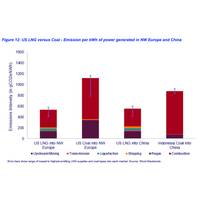Bad Choices cost Pemex $1 bln
Mexico's state-oil company Pemex burned through $665 million at its fertilizer unit, ignored consultants and made high-risk investments with no discernible business strategy, according to a devastating government audit of its 2017 operations.
The report, published late on Wednesday, offers insight into how Pemex ended up creaking under $106 billion of debt during the six-year term of former President Enrique Pena Nieto.
Mexico's Federal Audit Office (ASF) used unusually frank language in its assessment of Pemex's use of public resources, particularly with regard to the company's fertilizer subsidiary and a failed power generation unit.
The fertilizer company suffered net losses of $665 million in 2017, and its assets were worth $1.1 billion less over the course of the year.
"It destroyed value," read the assessment, the last of three reports by the audit office on the state of government finances in 2017.
Pemex did not immediately respond to a request for comment.
President Andres Manuel Lopez Obrador has vowed to revive Pemex by clamping down on over-spending, rampant fuel-theft and corruption, but ratings agencies and investors are wary that expansive plans to revamp Mexico's refineries could further weigh on finances.
Fitch downgraded the company's credit rating to one notch above junk last month.
David Colmenares, who has headed the ASF since before last year's election, told Reuters the results showed Pemex needed to be "re-engineered" to revive its finances.
"We believe that if we resolve many of these points, we will be able to recover (Pemex's) finances," he said.
He acknowledged corruption in the company, citing examples of contracts given to recently-created companies with no energy experience.
BAD BUSINESS
Many of the problems at Pemex Fertilizers, a subsidiary created under Pena Nieto's liberalization of the energy sector, stem from its purchase of two fertilizer plants in 2013 and 2016, the report said.
Both plants had previously belonged to Pemex before being privatized in the 1990s by Pena Nieto's Institutional Revolutionary Party (PRI).
The first plant, ProAgro, was not operational when Pemex bought it back for $475 million. Despite three attempts to revive it, the plant was still not up and running this year, the report said. The second plant, Fertinal, operated well below capacity, the report said.
Before the purchase, international auditors including PWC, warned Pemex's board of directors of the parlous state of the two plants, but the company went ahead and bought them anyway, the report said.
Similarly, Pemex created a new power generation unit, called Pemex Cogeneration and Services, in 2015, without the board of directors being presented any evidence or studies to show it could be a profitable business, or seeing a business or operation strategy, the report said.
Without any infrastructure to generate electricity, the company lost $19 million in 2017. Pemex closed the unit the following year.
Wilbur Matthews, founder of Texas-based Vaquero Global Investment, called Pemex's business decisions during the 2013-18 period "completely incongruous."
"The way that they were conducting business in the past six years did not make any sense at all," Matthews said.
During Pena Nieto's term, Pemex took on an additional $47 billion in debt, citing the deterioration in finances and commitments to keep up investment levels at a time when the oil prices collapsed.
Shamaila Khan, director of emerging market debt strategies at AllianceBernstein, which has $550 billion of assets under management and owns Pemex bonds, blamed the company's problems on the federal government charging it too much in taxes.
"The real issue is that the sovereign has taken a lot of money out of Pemex," she said.
Khan said the company's management had improved in the last years of Pena Nieto's government.
"The decision to do energy reform, to reduce the burden of expenditures for the company and to try and stabilize the company were actually good decisions from a management perspective."
By Frank Jack Daniel and Stefanie Eschenbacher











